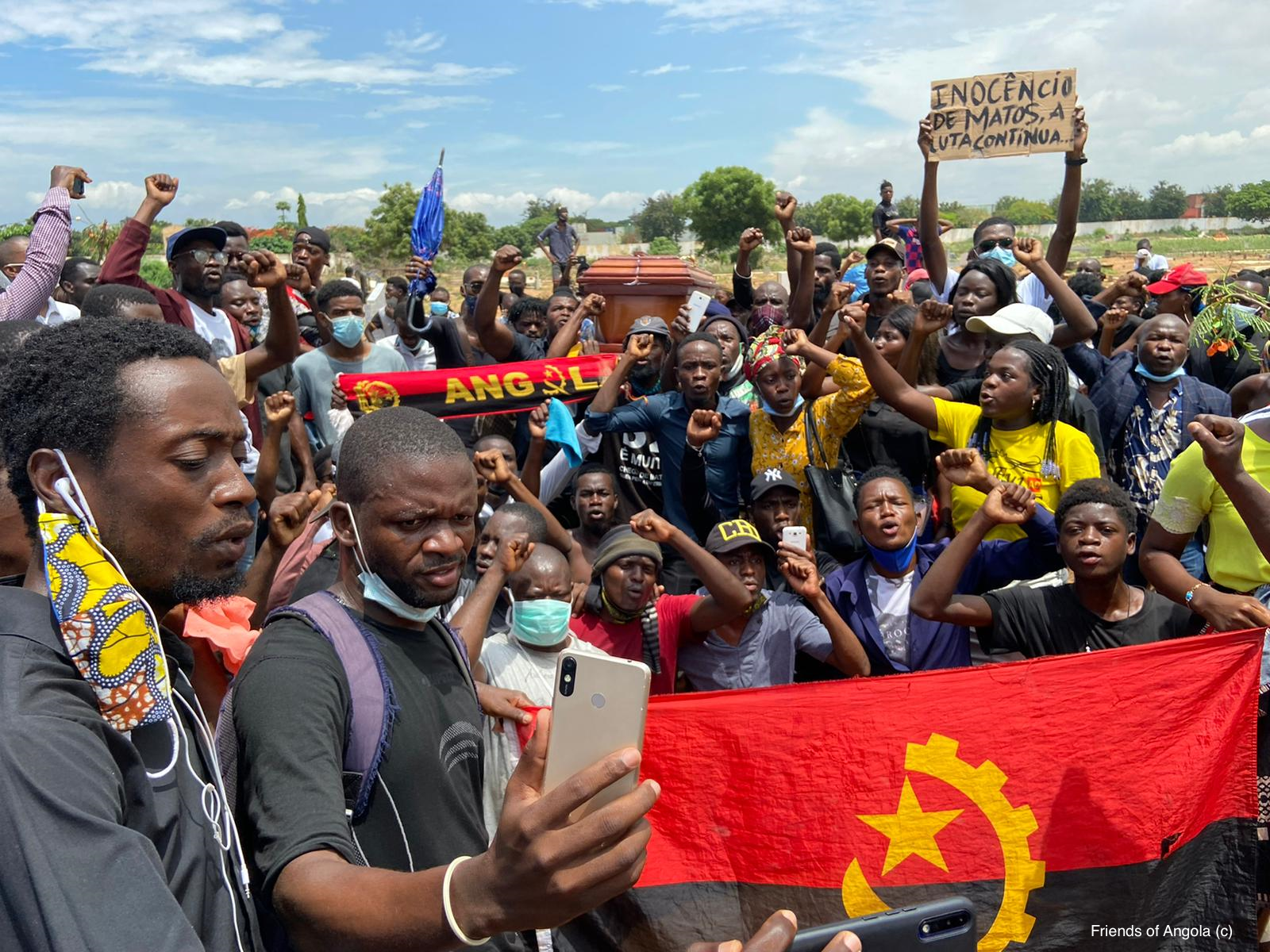By Florindo Chivucute | Friends of Angola
April 29, 2025
Since coming to power in 2017, President João Lourenço promised a new era for Angola, pledging to dismantle entrenched corruption, open political space, and revitalize democratic institutions after nearly four decades of rule by José Eduardo dos Santos. However, nearly eight years into Lourenço’s presidency, those early hopes have faded. Despite some initial reforms, Angola has experienced a steady decline in democratic governance marked by shrinking civic space, the concentration of executive power, and the instrumentalization of anti-corruption rhetoric for political ends.
Initial Optimism Meets Authoritarian Continuity
Lourenço’s first term raised cautious optimism among domestic and international observers. He moved quickly to sideline the powerful dos Santos family from key economic and security posts and launched high-profile anti-corruption investigations that drew headlines and support. Yet, even as he consolidated power, structural reforms to strengthen democracy — such as judicial independence, press freedom, and decentralization — failed to materialize meaningfully.
Instead, Angola’s democratic institutions have weakened. Parliament remains largely a rubber stamp for executive decisions, and the judiciary, though active in corruption cases, operates under strong political influence. Electoral processes are marred by irregularities and lack transparency, further undermining public confidence in democratic procedures.
Weaponizing Anti-Corruption and Suppressing Dissent
The government’s anti-corruption drive, while necessary, has increasingly been perceived as selective. Investigations and prosecutions tend to target political opponents or individuals no longer aligned with the ruling Movimento Popular de Libertação de Angola (MPLA), while allies implicated in serious abuses remain untouched. This selective enforcement reinforces elite impunity and undermines the credibility of reform.
At the same time, authorities have intensified repression of dissent. Peaceful protests — especially those led by youth, civil society groups, and informal sector workers — are often met with excessive force by security services. Arbitrary arrests, harassment of activists, and intimidation of journalists have become routine. Several independent media outlets face bureaucratic and financial pressures, while social media monitoring has expanded under vague “cybersecurity” laws, stifling free expression online.
Elections Without Accountability
The 2022 general election, which saw Lourenço secure a second term, was criticized for lacking transparency and fairness. The ruling MPLA leveraged state resources, controlled the electoral commission, and restricted opposition campaigning. Despite allegations of fraud and procedural manipulation, the Constitutional Court — also seen as politicized — swiftly validated the results.
Opposition parties, particularly UNITA, have called for electoral reform and an independent commission, but these demands have been largely ignored. Without a level playing field, Angola’s elections serve to legitimize power rather than reflect the popular will.
Civil Society and the Closing of Civic Space
Civil society organizations in Angola continue to operate under heavy constraints. Regulatory frameworks introduced under the guise of counterterrorism or NGO oversight have increased state control over funding and programming. Activists working on human rights, transparency, or land and environmental issues face surveillance and smear campaigns. Regional civil society networks have raised alarms about Angola’s backsliding, noting the gap between official commitments and on-the-ground realities.
The Illusion of Reform
President Lourenço’s government has maintained the appearance of reform, especially in its engagement with international financial institutions and foreign governments. Anti-corruption rhetoric and technocratic initiatives — such as public procurement digitalization and fiscal transparency measures — are often used to appeal to donors and investors. However, in practice, these reforms have not translated into more inclusive governance or greater accountability.
Instead, power remains highly centralized in the presidency and military-security apparatus. Provincial and municipal autonomy is weak, and decentralization efforts have stalled. The promise of a “new Angola” risks becoming a façade for continued authoritarianism under new management.
Conclusion: A Democratic Reckoning Ahead
As Angola approaches another electoral cycle in the coming years, the erosion of democratic norms poses a serious risk to national stability. Youth disenfranchisement, economic hardship, and repression are a volatile mix. Restoring faith in democracy requires more than public relations — it demands a genuine commitment to political pluralism, institutional independence, and respect for civil liberties.
President Lourenço still has time to reverse course, but doing so will require confronting not only the legacy of his predecessor, but also the authoritarian tendencies that have emerged under his own leadership.
About the Author
Florindo Chivucute is the Founder and Executive Director of Friends of Angola (FOA), a consultant, researcher, and a sanctions specialist. He holds a B.A. in Government and International Politics and a Master’s degree in Conflict Analysis and Resolution from George Mason University in the United States. His work focuses on promoting democracy, combating corruption, and strengthening civil society in Angola and across Central Africa.

